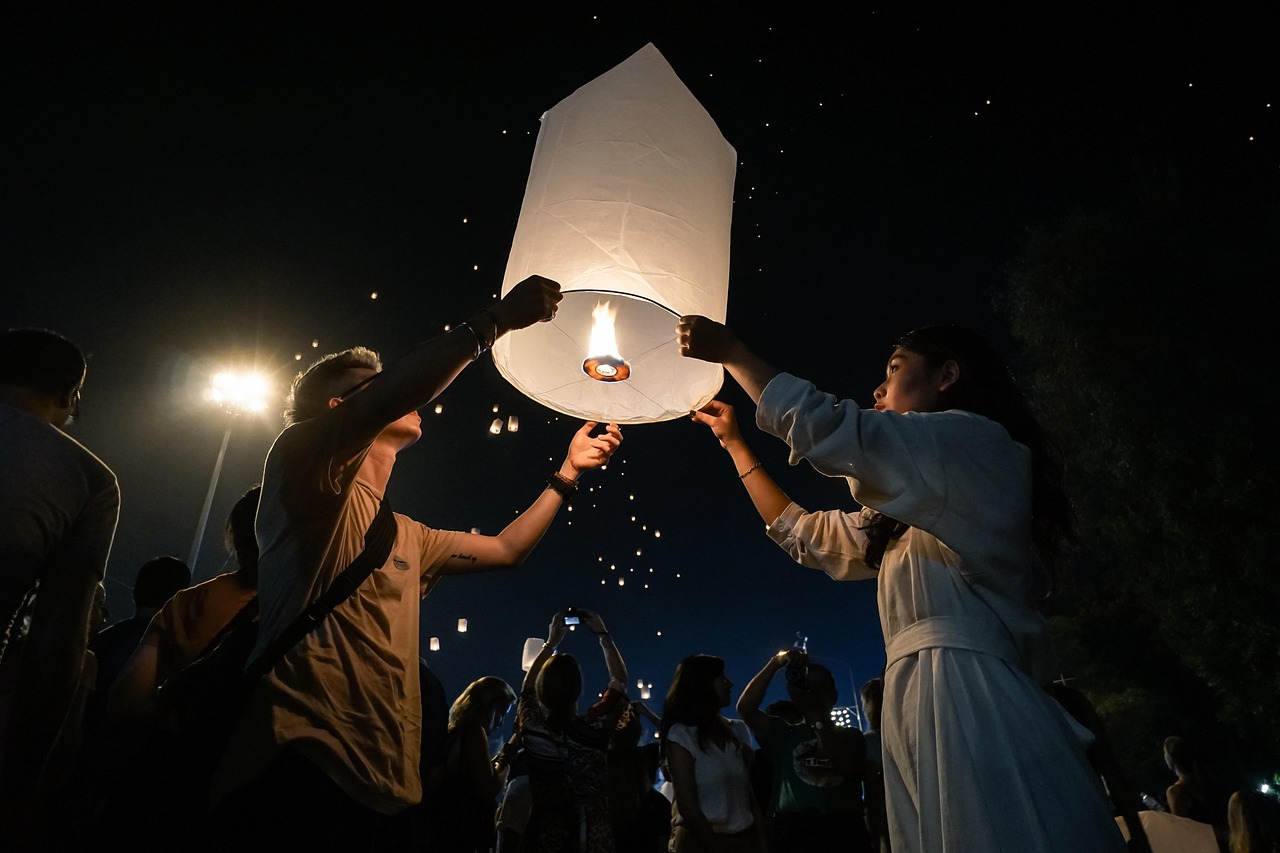Overview
Thailand welcomes tens of millions of visitors annually, from short-stay tourists to long-term residents who choose the country for its quality of life, climate, and services. While most trips are uneventful, minor illnesses and injuries do happen. Knowing how to access urgent care in Thailand—quick, practical treatment for non–life-threatening problems—can save time, money, and stress.
Urgent care in Thailand is primarily delivered by private hospitals, international clinics, and occasionally standalone urgent care centers in major cities. These facilities focus on efficient triage, same-day diagnostics, and treatment you can pay for out of pocket (with receipts for insurance reimbursement). In urban hubs, English-language support is common; in smaller towns, it may be limited but workable with translation apps and concise communication.
Not life-threatening vs. emergencies: Urgent care is for problems that should be seen soon, but do not require the full resources of a hospital emergency department. If symptoms are severe or rapidly worsening (e.g., chest pain, heavy bleeding, severe head injury), call 1669 for an ambulance or go directly to an ER.
What “Urgent Care” Means in Thailand
In many Western countries, the term “urgent care” refers to walk-in clinics that sit between family practice and hospital ERs. Thailand’s system is similar in concept but organized around private facilities that integrate ambulatory care, diagnostics, and pharmacy services under one roof. You do not need a referral to attend, and in most cases you can be seen the same day.
Typical use cases
- Fever, flu-like illness, sore throat, sinus infections
- Traveler’s diarrhea, food poisoning, dehydration
- Minor injuries: cuts, burns, sprains, suspected simple fractures
- Skin issues: rashes, insect bites, mild allergic reactions
- Medication refills (when appropriate) and basic follow-up care
What urgent care is not
- Emergency resuscitation and major trauma management
- Complex surgeries or multi-specialty inpatient care
- Long-term mental health treatment plans
- Advanced oncology, cardiology, or ICU-level monitoring
The strength of Thailand’s urgent care model is its speed and integration: triage, consult, basic labs, imaging, and prescription pickup can often occur within a single visit.
Emergency Numbers in Thailand
Thailand uses shortcodes for different emergency services. The most relevant are:
- Ambulance / Medical Emergencies: 1669
- Police: 191
- Fire: 199
- Tourist Police (assistance for foreigners): 1155
In large cities, private hospitals sometimes dispatch their own ambulances; some travelers prefer calling the hospital directly for potentially faster response and English coordination.
When to Choose Urgent Care vs. an Emergency Department
Appropriate for urgent care
- Fever without severe respiratory distress
- Vomiting/diarrhea with mild to moderate dehydration
- Sprains, strains, suspected hairline fractures
- Superficial cuts and burns; wound assessment and dressing
- Rashes, minor allergic reactions, insect bites
- Medication refills or straightforward prescription questions
Go to the ER or call 1669 immediately
- Chest pain, severe shortness of breath, suspected stroke
- Major trauma, heavy bleeding, severe head injury
- Severe allergic reaction (anaphylaxis): swelling, wheeze, collapse
- Loss of consciousness, new severe confusion, seizures
- Fractures with visible deformity or open wounds
A useful rule of thumb: if the condition compromises breathing, circulation, or consciousness—or risks rapid deterioration—treat it as an emergency. Otherwise, urgent care is usually the fastest practical route to diagnosis and relief.
How Visits Work (Step-by-Step)
- Registration: Show your passport. If you carry travel or expat insurance, present the policy details. You may sign consent forms and basic privacy notices.
- Triage: A nurse records vital signs (temperature, pulse, blood pressure, oxygen saturation) and a brief symptom history.
- Consultation: A clinician assesses the complaint, performs an exam, and recommends tests or treatment.
- Diagnostics (if needed): Same-day labs or imaging (e.g., X-ray, ultrasound). Results often return within 30–120 minutes.
- Treatment: On-site wound care, medications (e.g., antiemetics, antihistamines), IV fluids for dehydration, splints for injuries.
- Pharmacy & Discharge: Pick up prescriptions on-site or receive a script for an external pharmacy. You’ll be given written instructions and red-flag symptoms that require escalation.
- Billing & Receipts: Pay the bill (card accepted in most private clinics). Request an itemized receipt and doctor’s letter if you plan to claim on insurance.
Tip: Keep a photo of your passport’s data page and insurance card on your phone. If you’re traveling with companions, exchange emergency contacts and your hotel’s address in advance.
What to Bring & Preparation
- Passport (original preferred; a high-quality copy can help in a pinch)
- Insurance documents and claim instructions (if applicable)
- Payment method (Visa/Mastercard widely accepted; carry some cash)
- Medication list with dosages; known allergies clearly stated
- Names of any chronic conditions and current treating physicians
- Hotel or residence address and local contact number
If you use a health app or wearable, bring recent readings (e.g., heart rate trends, glucose logs). These details help clinicians tailor advice and may reduce unnecessary testing.
Costs, Billing & Insurance
Thailand’s private urgent care is generally affordable compared to many Western systems, though prices vary by city and facility tier. The ranges below are indicative and can rise with complexity:
- Consultation: ฿1,200–฿2,500 for straightforward issues; complex cases may be higher
- Laboratory tests: ฿500–฿3,000 depending on panels requested
- Imaging: X-ray or ultrasound typically ฿2,000–฿5,000
- Medications: varies; generics are often cost-effective
- Vaccinations: commonly ฿500–฿3,000 per dose (vaccine-dependent)
- At-home visit surcharge: varies by distance/time; expect a premium
Most facilities require up-front payment. For insurance claims, you’ll need an itemized receipt, diagnostic codes (if available), and the clinician’s notes or discharge summary. Some large private hospitals may offer direct billing for certain insurers, usually with prior approval.
Minimizing surprises
- Ask whether labs or imaging are included in the consultation fee.
- Request a cost estimate before tests when medically appropriate.
- Keep and photograph all receipts; insurers often require originals plus digital copies.
Language, Translation & Documentation
In Bangkok, Pattaya, Phuket, and Chiang Mai, international clinics and private hospitals frequently staff English-speaking receptionists, nurses, and doctors. In other areas, English may be patchy, but workable with the right tactics:
- Describe symptoms in short, plain sentences; avoid slang or idioms.
- Time-stamp your symptoms (“Started 2 days ago,” “Fever peaked last night”).
- Show medication boxes or photos of labels; note allergies clearly.
- Use translation apps for specific terms; confirm understanding by repeating the plan in your own words.
- Request printed or emailed summaries in English for your records and insurance.
Hours, Access & Wait Times
In major cities, private clinics commonly operate from 08:00–20:00, with some extending later. Hospital emergency departments and larger urgent care units run 24/7. Weekday mornings tend to be quieter; evenings and weekends can be busy, particularly in tourist districts and during local holidays.
Pharmacies
Pharmacies are widespread and usually open late. Pharmacists may provide guidance for minor ailments and fill prescriptions. Regulations differ by medication class; some items that require prescriptions at home may be more strictly controlled or, in some cases, more accessible in Thailand. Always follow local law and clinician advice.
How Urgent Care in Thailand Can Help (Service Categories)
1) Common illnesses
Clinics address upper respiratory infections, ear and sinus problems, seasonal influenza, gastrointestinal upsets, and traveler’s diarrhea. Hydration therapy (oral or IV), antipyretics, antiemetics, and short courses of antibiotics (when indicated) are typical. Dengue screening may be considered depending on symptoms, duration, and local prevalence.
2) Minor injuries
Expect thorough wound irrigation and dressing for cuts, burn evaluation and cooling/ointment protocols, tetanus boosters when appropriate, and splinting of sprains or suspected simple fractures. Severe pain, deformity, or neurovascular compromise warrants ER evaluation.
3) Testing & diagnostics
Most private facilities can run same-day blood and urine tests, rapid infectious disease screens, ECGs, and plain radiographs. Ultrasound is commonly available; CT/MRI typically require referral within the same hospital network.
4) Immunizations & preventive care
Many clinics stock travel vaccines such as tetanus, hepatitis A/B, and rabies pre-exposure series. Availability varies by city; call ahead if you have a narrow travel window.
5) Telehealth consults
Video or phone consults help with triage, medication questions, and non-urgent issues. Telehealth is strongest in Bangkok and major tourist hubs. Prescriptions may still require an in-person visit depending on the medication.
6) At-home visits
Some private providers dispatch doctors or nurses to hotels and residences—useful for mobility constraints, infection control, or convenience. Expect higher fees and variable availability outside major cities.
7) Mental health & therapy support
Urgent care can offer brief counseling, crisis support, and referrals to English-speaking psychologists or psychiatrists. For ongoing therapy, private mental health clinics and teletherapy platforms are increasingly available.
City-by-City Notes: Bangkok, Pattaya, Chiang Mai
Bangkok
The capital concentrates Thailand’s most advanced private hospitals and international clinics, particularly along Sukhumvit, Silom, and Ratchathewi corridors. English-language services are common. While costs are higher than elsewhere in Thailand, integration is excellent: triage, diagnostics, and pharmacy typically operate seamlessly. Expect efficient imaging and specialist access when needed.
Pattaya
A major coastal hub with a long history of serving international visitors. You’ll find numerous clinics with extended hours and English-speaking staff in tourist-heavy zones. Quality varies more than in Bangkok; reading recent reviews and bringing a concise symptom note can help speed care. Prices fluctuate by facility and season.
Chiang Mai
Northern Thailand’s cultural center has several reputable private hospitals and international clinics. Services cluster around the Old City and Nimman areas. Waits can lengthen in the evenings and on weekends; weekday mornings are generally calmer. English support is widely available in private settings.
Self-Care & Over-the-Counter Options
For mild, self-limiting conditions, a short period of rest and hydration may be appropriate before seeking in-person care. Pharmacies can advise on common OTC medications for fever, pain, allergies, motion sickness, and gastric upset. Always follow label directions and avoid drug interactions with your regular prescriptions.
Hydration & GI care
- Oral rehydration salts (ORS)
- Antiemetics & antidiarrheals (as directed)
- Bland diet while symptoms settle
Pain & fever
- Acetaminophen / paracetamol
- NSAIDs (if appropriate for you)
- Rest and temperature monitoring
Skin & allergy
- Antihistamines for bites or mild reactions
- Topical antiseptics for minor cuts
- Sunburn gels and gentle moisturizers
Red flags: persistent high fever, blood in stool, severe abdominal pain, progressive shortness of breath, chest pain, fainting, or neurological symptoms. These warrant urgent medical assessment rather than self-care.
Traveler Health Tips & Preventive Habits
- Hydrate consistently: Heat and humidity increase fluid needs; carry bottled water and consider ORS during illness.
- Food safety: Opt for freshly cooked dishes; be cautious with raw seafood and unpasteurized products.
- Mosquito precautions: Use repellent, wear long sleeves at dusk/dawn, and sleep with screens or nets where appropriate.
- Sun protection: Apply broad-spectrum sunscreen; reapply after swimming or sweating.
- Travel kit: Include bandages, antiseptic wipes, pain relievers, antihistamines, antidiarrheals, and any routine meds.
- Medical papers: Keep digital copies of prescriptions, vaccination cards, and specialist letters.
- Know your limits: If symptoms persist beyond 24–48 hours or new red flags arise, seek clinic review promptly.
Frequently Asked Questions
Do private clinics accept international insurance?
Many clinics request payment at the time of service and provide itemized receipts for reimbursement. Larger hospitals sometimes offer direct billing to certain insurers, typically with prior authorization. If you expect to claim, keep every receipt and ask for a detailed medical report.
Can I see an English-speaking doctor?
In Bangkok, Pattaya, Phuket, and Chiang Mai, English-speaking staff are common in private facilities. If language is a concern, request an international patient coordinator or bring a trusted translator app to the appointment.
Are walk-ins accepted, or do I need an appointment?
Walk-ins are commonly accepted at urgent care units and private hospitals, though waiting times vary. Appointments can shorten the process, especially when you anticipate needing imaging or specialist input.
Will I receive my test results the same day?
Many basic labs and X-rays return the same day, often within hours. More complex imaging or specialized tests may require additional time or a follow-up visit.
Can I get routine prescriptions refilled?
In many cases, yes—subject to local regulations and clinical judgment. Bring your existing prescription or a photo of the label and a list of current medications to assist the clinician.
What if I have a chronic condition?
Bring a summary from your home physician if possible. Urgent care can handle acute flares and short-term needs; for comprehensive management, a referral to a local specialist or primary care clinic may be arranged.
What about mental health support?
Urgent care can provide immediate support and referrals. English-speaking therapists and psychiatrists are available privately in major cities, and teletherapy options have expanded in recent years.
Glossary: Useful Thai & Medical Terms
- โรงพยาบาล (Rong-phayaban): Hospital
- คลินิก (Klinik): Clinic
- ยาฉุกเฉิน (Ya-chuk-chen): Emergency medicine
- หมอ (Mor): Doctor
- พยาบาล (Phayaban): Nurse
- ยา (Ya): Medicine/Drug
- ประกันสุขภาพ (Prakan-sukkhaphap): Health insurance
- แพ้ยา (Phae-ya): Drug allergy
Showing a short, typed list of your symptoms and allergies in English is usually sufficient in private facilities. If needed, a translation app can display Thai script alongside English.
Keep key numbers handy: 1669 (ambulance), 191 (police), 199 (fire), and 1155 (tourist police).
Disclaimer
This site is a general information resource for travelers and expatriates in Thailand. It is not medical advice, diagnosis, or treatment. Always consult qualified healthcare professionals for personalized guidance. For life-threatening emergencies, call 1669 for an ambulance or go to the nearest hospital emergency department.
Last updated: August 2025


